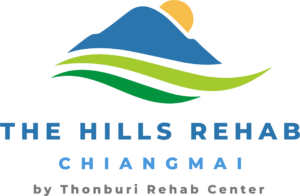Table of Contents
Introduction:
In the expansive world of video games, Red Dead Redemption 2 (RDR2) stands out not only for its stunning visuals and gripping storyline but also for its nuanced portrayal of mental health. At the center of this narrative is Arthur Morgan, the game’s complex protagonist, whose struggles with mental health unfold against the backdrop of a changing world at the turn of the century.
Summary of Red Dead Redemption 2 (Spoiler Alert) :

Red Dead Redemption 2, developed by Rockstar Games, is an action-adventure game that follows the story of Arthur Morgan, a member of the Van der Linde gang, led by the charismatic Dutch van der Linde. Set in 1899, against the backdrop of the dying Wild West, the gang faces the challenges of a society transitioning into a more modern and industrial era.

Arthur Morgan, the rugged and loyal enforcer of the gang, becomes a central figure in the narrative. As the gang navigates through the upheavals of changing times, Arthur grapples with his loyalty to Dutch, the moral ambiguity of their actions, and the realization that the world he knows is fading away.
Arthur Morgan’s Mental Landscape :

Red Dead Redemption 2 is remarkable for its commitment to realism, and nowhere is this more evident than in its depiction of Arthur’s mental struggles. Unlike conventional video game narratives, Arthur’s psyche is laid bare, subject to the brutalities of his environment and the weight of moral decisions.
Deteriorating Mental Health :

As the narrative unfolds, players witness Arthur’s mental health deteriorate. The toll of violent encounters, the specter of a terminal illness, and the existential crisis brought on by a changing world contribute to a profound exploration of mental well-being. The game shatters the stigma surrounding mental health by portraying its effects with unflinching honesty.
Metaphor of Change :

The evolving civilization serves as a metaphor for Arthur’s internal turmoil. The encroachment of progress, the dissolution of the Wild West’s ethos, and the gang’s descent into chaos reflect Arthur’s struggle to reconcile his past actions with the emerging reality. The game deftly connects the external transformation with Arthur’s internal metamorphosis.
Coping Mechanisms :

Red Dead Redemption 2 also subtly introduces coping mechanisms. Arthur turns to journaling, a reflection of his inner thoughts, as a therapeutic outlet. This narrative device not only provides insights into his mental state but invites players to engage empathetically with his journey.
The Paradox of Loyalty :

At the core of Arthur’s mental landscape is the paradox of loyalty. His unwavering commitment to Dutch and the gang clashes with the realization that their way of life is fading. This internal conflict elevates the narrative, making Arthur’s choices and their impact on his mental health poignant and relatable.
The Act of Redemption :
In a poignant turn towards the game’s conclusion, Arthur, facing his mortality, makes a pivotal choice that resonates with the exploration of mental health. John Marston, a fellow gang member known for his unwavering moral compass amidst the encroaching toxicity of the gang, becomes the focus of Arthur’s redemptive act.

Recognizing John’s inherent goodness and the worthiness of saving him from the now toxic dynamics within the gang, Arthur’s decision is not merely an act of self-reflection but a deliberate effort to break the cycle of violence that engulfs their lives. This adds a profound layer to the game’s exploration of mental health, emphasizing the transformative and redemptive power of conscious choices, especially in the face of adversity.
The Conclusion of RDR2 :
In a gaming landscape often dominated by superficial narratives, Red Dead Redemption 2 stands as a testament to the evolving sophistication of storytelling in video games. It immerses players in a world where mental health is not just a peripheral concern but a central theme, enriching the narrative and prompting reflection on the human condition.

The journey of Arthur Morgan is more than a digital escapade; it’s an introspective exploration of a mind grappling with change, mortality, and morality. Red Dead Redemption 2 transcends the gaming realm, becoming a poignant narrative that mirrors the complexities of the human experience.
Free Consultation
Are you in need of assistance on your journey to recovery? Contact us. We are here to help. At our reputable rehab center, we offer a complimentary consultation to provide guidance and support tailored to your specific needs.
Contact Us
"*" indicates required fields





